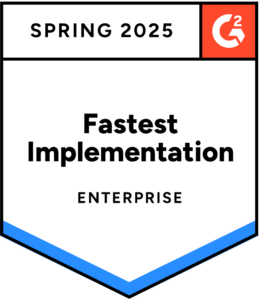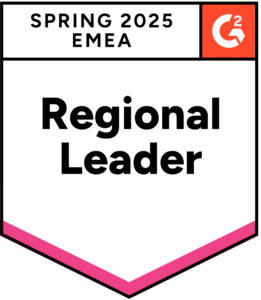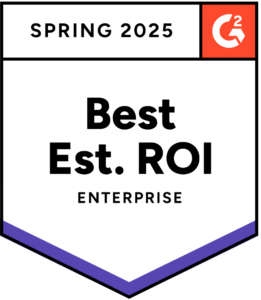Strict Energy Regulations Will Affect Regulatory Reporting for Utilities
Blog post
Share
The transition to producing greener energy has long been on the agenda of the power and utilities industry. And with the impact of COVID-19, one of the more positive effects has been the significantly reduced carbon emissions. Many utility organizations have pledged to focus on powering their customers with clean energy due to this recent outcome of the pandemic. In fact, some of the biggest U.S. utilities organizations have announced their commitment to cut their carbon emissions to zero by 2050.
However, regulatory bodies are beginning to suggest that the power and utilities industry will have to focus on reducing emissions up to 90% by 2030 — meaning that forthcoming, strict energy regulations are inevitable for this sector.
It is imperative that the Office of Finance within utility organizations begins preparing to meet these regulations, not only financially — as this new renewable energy agenda will demand a reprioritization of certain budgetary areas — but also in terms of regulatory reporting. Meeting disclosure deadlines and reducing reporting errors will be critical in the coming years to ensure full financial visibility and demonstrate that organizations are compliant with these regulations. This finance transformation needs to start now.
Holistic Financial Close Process Improvement
Improving the accuracy of reporting means that the Office of Finance in the utilities industry needs to begin by examining their entire financial reporting process. Though it is important that individual processes are assessed for efficiency and effectiveness, the entire Record to Report (R2R) needs to be evaluated holistically as well. Key questions to ask about the R2R process include:
- Is there an effective System of Controls being enforced across the entire process?
- Does management have sufficient visibility into all R2R activities?
- Is the close workflow standardized and streamlined for maximum efficiency?
Evaluate Data Integrity
The Office of Finance also needs to evaluate the integrity of all data running through the Record to Report process. One critical step towards reducing reporting errors is ensuring that all data is centralized in one location. A 2020 Forrester Report found that respondents used, on average, nine ERP vendors and 18 globally deployed instances. The resulting extreme complexity in data systems not only contributes to inaccuracy but causes finance and accounting teams to spend far too much time and effort on low-value, manual tasks related to this fragmented data. Strategic activities like pinpointing high-risk areas tend to take a backburner to these foundational tasks.
Upcoming regulatory standards for utility organizations will demand a different, more effective strategy to increase data integrity in all areas of the Record to Report.
Establish Key Control Framework
An established, effective System of Controls is significantly critical to both the accuracy and timeliness of organizations’ regulatory reporting. An effective System of Controls does not stop at creating financial controls — controls must be thoroughly evaluated, comprehensively tested, and integrated. This System of Controls must include:
- Operational matching/reconciliation
- Journal entry management
- Intercompany transaction management
- General ledger balance sheet reconciliation and variance analysis
- Close workflow management
- Control inspection and verification
- Access to disclosure management
Another trademark of an effective System of Controls is a verifiable and permanent record of all your controls which includes what they are, when these controls are run, the results and what to do if a control fails. Additionally, it is important to create a System of Controls that has the ability to integrate with your System of Record — any ERPs, tax or treasury systems and financial planning systems — which also works toward increasing the accuracy of the financial reporting.
Organizations without a planned, comprehensive System of Controls built into their Record to Report process will struggle as they try to meet the new, demanding regulations.
An Integrated Solution for Regulatory Reporting
Trintech, a leader in financial close software, and Workiva, a leader in connected reporting, have partnered to deliver a comprehensive, integrated solution to transform how organizations execute their global financial close and regulatory reporting requirements.
Cadency’s System of Controls
Gain control in the financial close process with a System of Controls that anchors within the organization’s compliance framework to ensure that key processes such as reconciliation, journal entry, close management and controls monitoring are in scope, auditable and reportable. A System of Controls provides the visibility to identify opportunities to remove bottlenecks in the process to increase your efficiency and effectiveness while reducing your cost and risk.
Streamline Regulatory Disclosures with Workiva
The Trintech and Workiva integration is focused on the full Record to Report process and ensures visibility with real-time dashboards to upstream activities such as reconciliation, journal entries, close task management and controls monitoring, as well as downstream activities including disclosure and statutory reporting. Disclosure management and statutory reporting steps are integrated into Trintech’s solutions, so those activities are easily visible, managed and controlled. This real-time visibility into both solutions provides your organization with the confidence in the numbers you are disclosing.
Proper Corporate Disclosure for Utilities
The Office of Finance within the utilities industry needs to prepare their financial processes for the regulatory changes that are inevitably coming. Outdated and inefficient tools like spreadsheets and manual processes ultimately endanger the regulatory standing of organizations, as they introduce high and unnecessary levels of risk.
Learn more about how Trintech and Workiva can optimize and streamline the regulatory reporting process for utilities organizations.
Written by: Ashton Mathai







